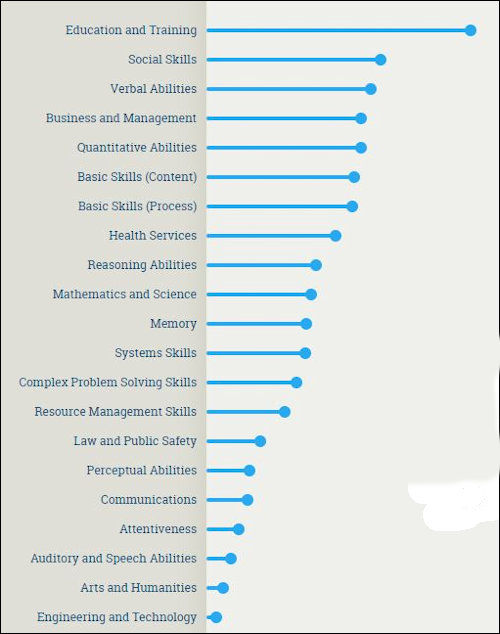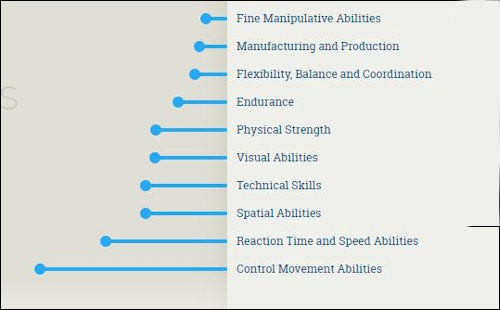As Virginia legislators ponder future investments in the Old Dominion’s talent pipeline (see my previous post), they might consider consulting data recently published by the Organisation for Economic Cooperation and Development (OECD). The organization defines skills as hard-to-find (or in shortage) when employers are unable to recruit staff with the required skills in a labor market at the going rate of pay and working conditions. Skill surpluses arise in the opposite case, when the supply exceeds of demand for a given skill.
In the United States, surplus skills tend to be associated with physical abilities (strength, coordination, speed, reaction time) — no surprise there. But, given focus on the shortage of IT workers in Virginia, one might surmise that STEM (Science, Technology, Engineering and Math) skills are in shortest supply. According to OECD data, those skills are in modestly short supply, but the greatest skill deficits are education & training, social skills, verbal abilities, and management. (Those are national numbers, not Virginia-specific. Virginia labor markets may or may not reflect national trends.)
What does this tell us? It’s all well and good to strengthen Virginia’s K-12 and higher-ed math and science curriculum. But we can’t neglect reading, writing, communications, and collaboration. Who knows, a humanities education might come back in style one day.



Leave a Reply
You must be logged in to post a comment.